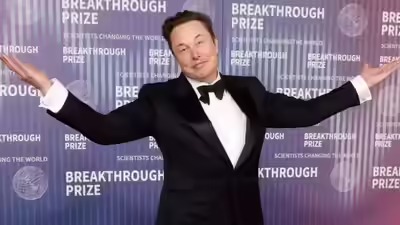Tesla CEO Elon Musk is intensifying efforts to secure shareholder approval for his unprecedented $1 trillion pay package by emphasizing control over the company’s future. The controversial compensation plan, tied to ambitious performance goals, faces opposition from proxy advisory firms ahead of a decisive November vote.
Elon Musk’s proposed $1 trillion compensation plan for Tesla, potentially the largest CEO pay package in history, has entered a critical phase as Musk pushes aggressively for shareholder approval. The package, unveiled by Tesla’s board, links massive stock awards to reaching lofty targets including an $8.5 trillion market capitalization, production of 20 million vehicles, and major advancements in autonomous technologies.
During Tesla’s recent earnings call, Musk framed the package not as mere compensation but as essential to maintaining strategic control over Tesla’s next transformative chapters—especially in AI, robotaxis, and humanoid robots. He warned shareholders that failure to approve the plan might jeopardize his involvement at Tesla, underscoring his commitment to long-term leadership.
Despite this, influential proxy advisory firms, notably Institutional Shareholder Services (ISS), recommend shareholders reject the pay deal, criticizing its scale, potential dilution, and limited board oversight on future pay adjustments. ISS estimates the package’s value at over $100 billion, exceeding Tesla’s own valuation.
Musk, who holds about 13% of Tesla’s voting power and could increase it substantially if approved, has clashed publicly with proxy firms, accusing them of exerting outsized market influence and political bias.
Key Highlights:
-
Elon Musk seeks shareholder approval for historic $1 trillion Tesla pay package.
-
Package tied to ambitious market cap and production milestones.
-
Musk frames pay package as key to maintaining strategic control over Tesla.
-
Proxy advisory firms oppose the plan citing excessive dilution and governance concerns.
-
Musk holds significant voting power, potentially pivotal in approval outcome.
-
Approval would drastically increase Musk’s Tesla ownership stake and authority.
-
Controversy follows earlier legal challenges to Musk’s 2018 compensation deal.
-
Vote expected on November 6, 2025, amid intense investor scrutiny and media attention.
This unfolding saga underscores the tension between visionary leadership incentives and shareholder governance dynamics in one of the world’s most high-profile companies.
Source: Wall Street Journal, Reuters, CNBC, Bloomberg, Business Insider

